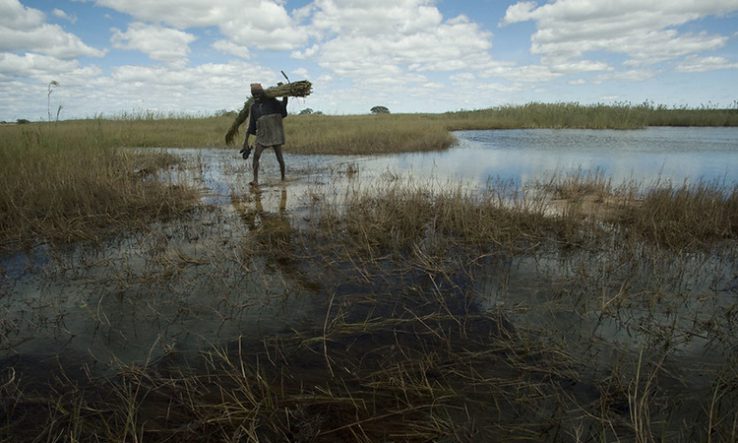
Image: CIF Action [CC BY-NC-ND 2.0], via Flickr
Africa-led, Africa-centred programme to influence thinking and action on the continent
Research partners in South Africa and the United Kingdom have launched a programme to study the best ways to safeguard African ecosystems.
The Future Ecosystems for Africa programme is a partnership between the wealthy Oppenheimer family’s charitable research and conservation arm, the University of the Witwatersrand (Wits) and the University of Exeter in the UK.
Fuelled by a R20 million (US$1.2m) donation from the Oppenheimer Generations trust, the scheme is part of Wits’ funding drive to celebrate its centenary this year that aims to raise R3 billion for research and other initiatives.
The programme will run for five years and will support three full-time PhD students, two post-doctoral students, and four funded research associates. It will prioritise ecosystem-based interventions in Africa, studying what to protect and how. It will also identify whose voices need to be included in this decision-making.
‘A breath of fresh air’
Laura Pereira, associate professor at Wits’ Global Change Institute, says the donation is one of a kind since both the funding and the leadership is African.
“As we were able to work with the funders to craft the work programme, it is flexible to what we as researchers think are the critical areas for study rather than us responding to a call, which is a breath of fresh air,” she told Research Professional News.
Pereira adds that she, along with fellow scientist and associate Wits professor Sally Archibald, are working with project partners from across the continent and the globe to drive research that can feed into policy strategies.
Duncan Kimuyu, project partner and head of the natural resources department at Karatina University in Kenya, said the programme presents a chance to change the narrative and perceptions about African ecosystems.
Duncan MacFadyen, head of research at Oppenheimer Generations Research and Conservation, added that the programme is expected to create a real impact on the continent: “We hope to better understand the unique and complex relationships between man and the environment, as well as develop an understanding of self-healing rates within different landscapes across the continent.”
Wits said in a statement that the programme will build on findings from the Intergovernmental Science-Policy Platform for Biodiversity and Ecosystem Services regional assessment for Africa. IPBES is the intergovernmental body that assesses the state of biodiversity and the value of the services ecosystems provide to society, in response to requests from decision-makers.